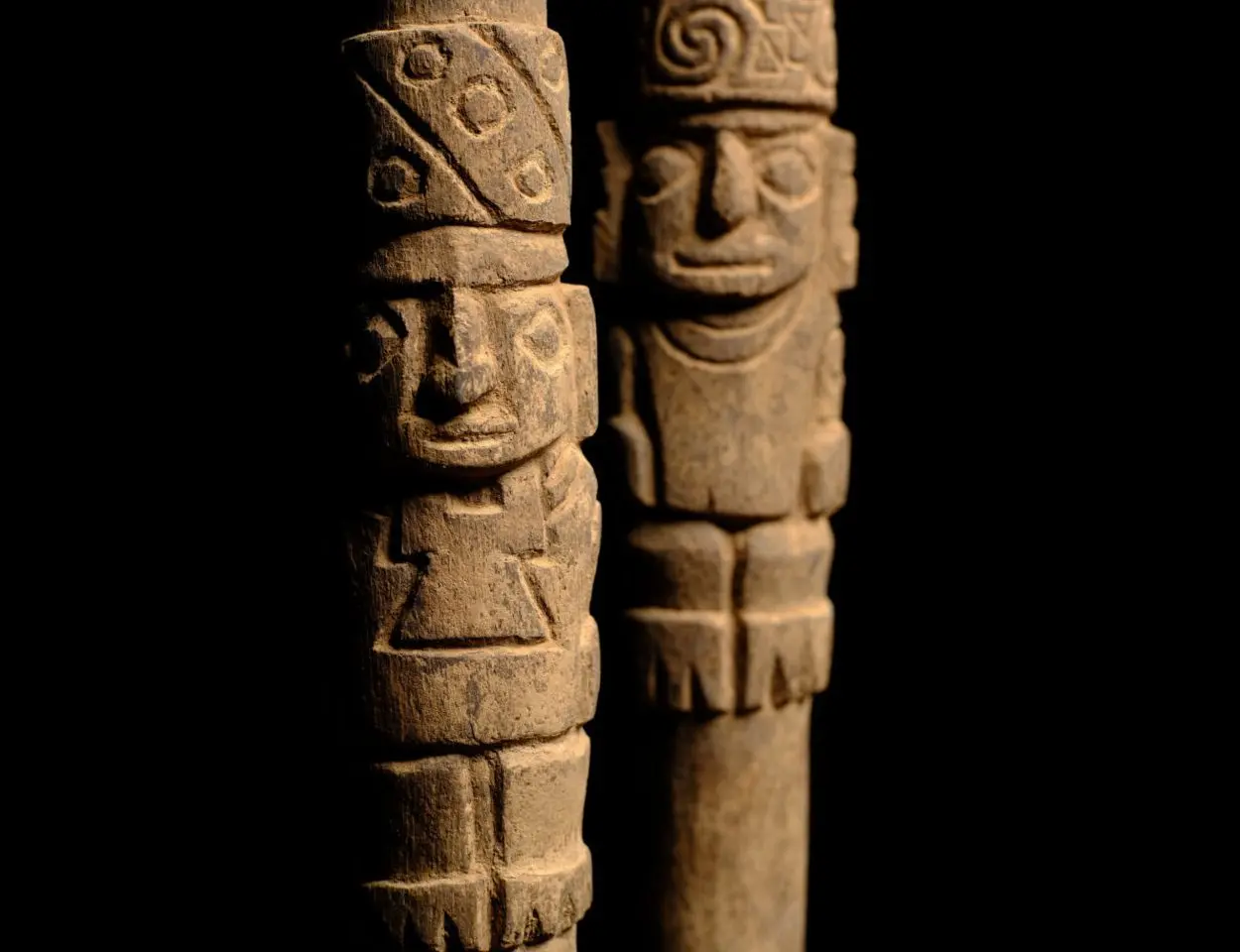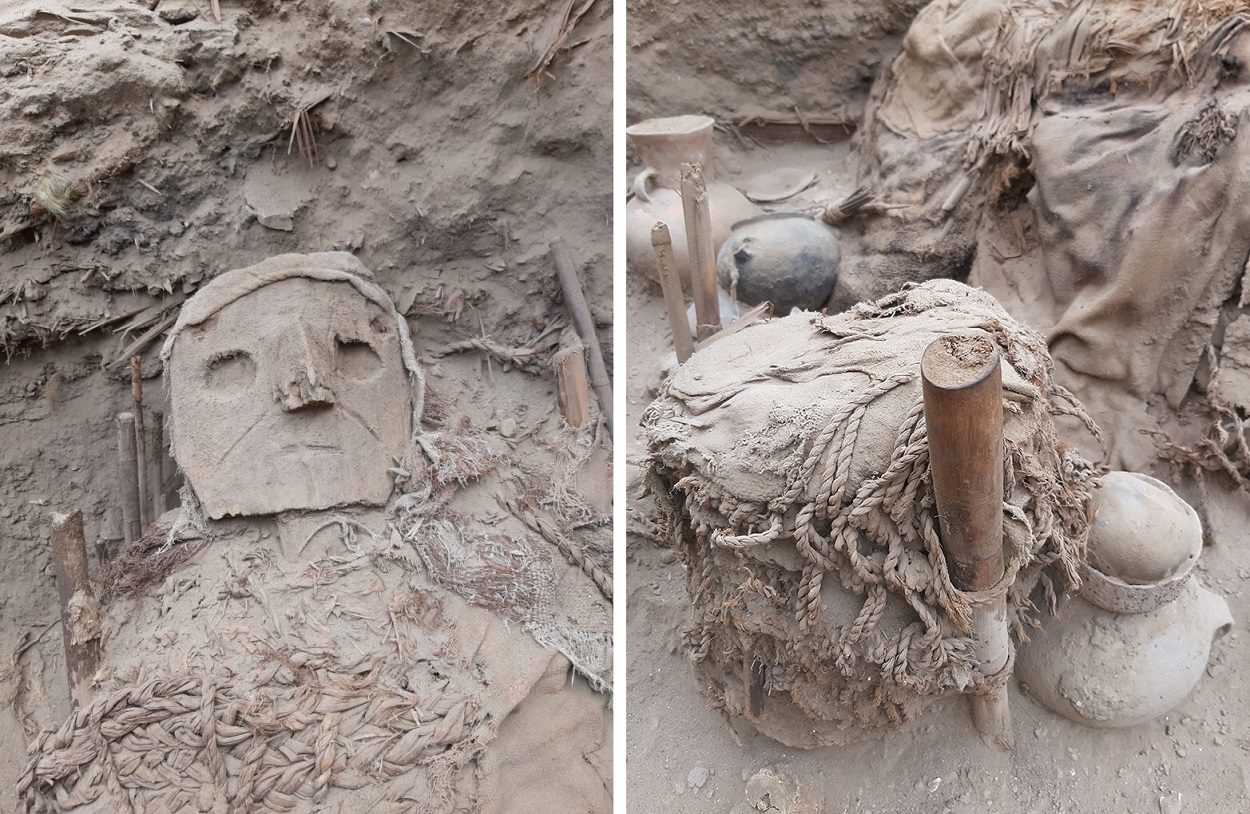A team of archaeologists from the PUCP Archaeology Program “Valley of Pachacámac” have uncovered over 70 intact burial bundles with carved masks.
The discovery was made at Pachacámac, an archaeological site in the Valley of the Lurín River, located southeast of Lima, Peru. Pachacámac (named after Pacha Kamaq – the “Earth Maker” creator god) was first settled around AD 200 by the Wari, a Middle Horizon civilisation.
Pachacámac mainly consists of pyramids, plazas, cemeteries, and a series of ramps, centred on a sacred zone containing the Painted Temple, the Temple of the Sun, and the Old Temple of Pachacamac.
Recent excavation results announced on the Archeowieści blog, which is managed by the Faculty of Archaeology of the University of Warsaw, have uncovered over 70 intact burial bundles dating from the second half of the Middle Horizon (AD 800–1100).

The burial bundles were found either deposited individually or in group clusters at the foot of the Painted Temple, some of which are wearing “false head” masks made of carved wood and ceramics, a common burial practice of the Wari culture.
Professor Makowski, said: “In the pre-Hispanic Andes, no-one died; everyone was predestined to continue living in the parallel world of their ancestors.”
Excavations also discovered wooden staffs with images of Wari elite wearing Tiwanaku-type headgear. They were located in a votive deposit covered with a layer of oyster shell fragments imported from Ecuador.
The Wari worshipped the Staff god, the chief creator god, which is often found in both portable and fixed art using different media such as stone, textile, and ceramics. Some scholars believe that some variations of the Staff God are possible depictions of Viracocha or Thunupa, and are the forerunner of the Inca principal gods – the Sun, Moon, and Thunder.
Header Image Credit : PUCP Archaeology Program “Valley of Pachacámac” – CC BY-SA 4.0





